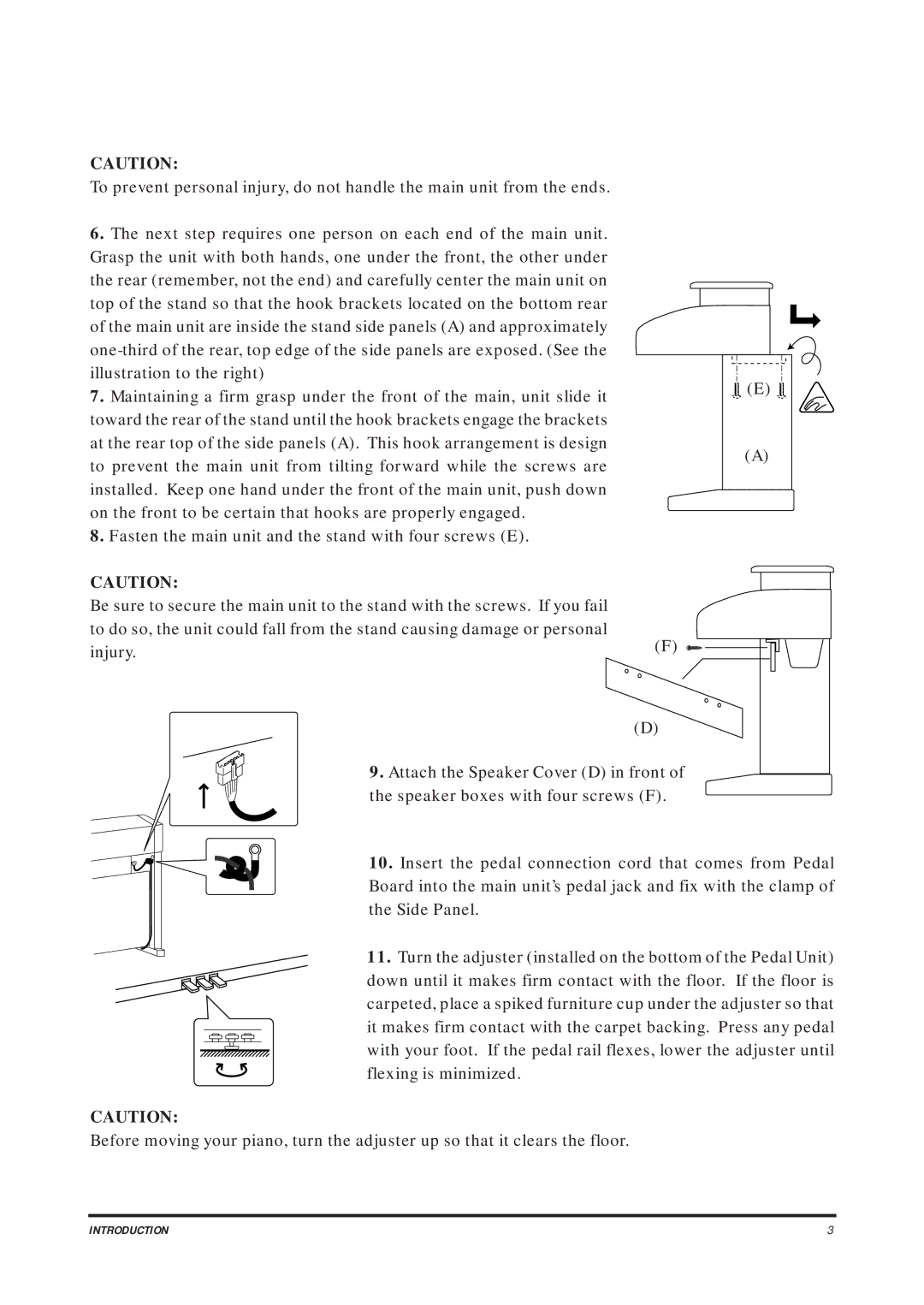
CAUTION:
To prevent personal injury, do not handle the main unit from the ends.
6.The next step requires one person on each end of the main unit. Grasp the unit with both hands, one under the front, the other under the rear (remember, not the end) and carefully center the main unit on top of the stand so that the hook brackets located on the bottom rear of the main unit are inside the stand side panels (A) and approximately
7.Maintaining a firm grasp under the front of the main, unit slide it toward the rear of the stand until the hook brackets engage the brackets at the rear top of the side panels (A). This hook arrangement is design to prevent the main unit from tilting forward while the screws are installed. Keep one hand under the front of the main unit, push down on the front to be certain that hooks are properly engaged.
8.Fasten the main unit and the stand with four screws (E).
(E) |
(A) |
CAUTION: |
| |
Be sure to secure the main unit to the stand with the screws. If you fail |
| |
to do so, the unit could fall from the stand causing damage or personal | (F) | |
injury. | ||
|
(D)
9. Attach the Speaker Cover (D) in front of the speaker boxes with four screws (F).
10. Insert the pedal connection cord that comes from Pedal Board into the main unit’s pedal jack and fix with the clamp of the Side Panel.
11. Turn the adjuster (installed on the bottom of the Pedal Unit) down until it makes firm contact with the floor. If the floor is carpeted, place a spiked furniture cup under the adjuster so that it makes firm contact with the carpet backing. Press any pedal with your foot. If the pedal rail flexes, lower the adjuster until flexing is minimized.
CAUTION:
Before moving your piano, turn the adjuster up so that it clears the floor.
INTRODUCTION | 3 |
